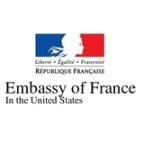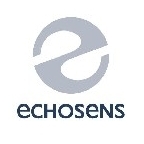Team:Paris
From 2009.igem.org
(→Our Sponsors) |
|||
| Line 98: | Line 98: | ||
</font> | </font> | ||
| - | |||
| - | |||
| - | |||
| - | |||
| - | |||
| - | |||
| - | |||
| - | |||
| - | |||
| - | |||
| - | |||
| - | |||
| - | |||
| - | |||
| - | |||
| - | |||
| - | |||
| - | |||
| - | |||
| - | |||
| - | |||
| - | |||
| - | |||
| - | |||
| - | |||
| - | |||
| - | |||
| - | |||
| - | |||
| - | |||
| - | |||
| - | |||
| - | |||
| - | |||
| - | |||
== Visitors & Collaborations== | == Visitors & Collaborations== | ||
Revision as of 15:16, 11 October 2009
iGEM > Paris > Home > Synopsis
Contents |
Message in a Bubble

Legend : BLABLA et la rendre clicable
Abstract
Message in a Bubble: a robust inter-cellular communication system based on outer membrane vesicles. Sending a message across the ocean… Outer membrane vesicles (OMV), naturally produced by gram negative bacteria as E. Coli, are strong candidates for long-distance messaging. Our engineered communication platform consists of controlling OMV production by destabilizing membrane integrity through over-expression of specific periplasmic proteins (e.g., TolR). In order to control and modulate message content, we used fusions with OmpA signal sequence and the ClyA hemolysin as delivery tags. A targeting system was developed, based on the outer-membrane expression of Jun/Fos leucine zippers to control the vesicle flux between donor and recipient cells. Once received, the signal from incoming vesicles is transduced through a modified Fec pathway, whereby the receptor is provided by the OMV. Computational models provided insight to all of the above steps. Such reliable communications systems have wide biotechnological implications, ranging from targeted drugs delivery and detoxification to advanced division of labor or even cell-based computing.
Strategy
We aimed developing a long distance communication system between gram-negative bacteria that is based on the ability of these organisms to produce Outer-Membrane Vesicles (OMVs). We designed a framework which can be easily expanded to a lot of different inputs/ouputs. We hope this standardized approach will increase our capacity to manipulate information and/or exchange it between bacteria. This can be used in any engineered biological process requiring transformation or a system of information transfer, including medical applications and bio-remediation.
We did our best to standardize:
- the increase of vesicle production;
- the system to address proteins to these vesicles;
- their fusion with target bacteria.
You can find detailed information in our OMV Project description or in our different parts.
By analogy to the Internet Protocol, we called our process a Bacterial Protocol. We found that the title Message in a bubble described it quite nicely. In a simple way, the comprehension of vesicles process sounds like a build of a bacteria language.
For more information on how we came up with this idea, please have a look at our brainstorming area.
flefevre : je propose qq lignes ici pour aider à la navigation: comment utilise t on votre wiki, liens importants, l'icone book pour la lecture dirigée
Extended Team
iGEM Paris Team
Hello everyone! welcome to our wiki. It's the 3rd year for the Paris Team and we're still motivated to do our best. This year we have a team of 13 students (what a luck). We are 6 biologists, 2 mathematicians, 1 computer scientist, 1 sociologist, 1 infectiologist, 1 geneticist, and 1 chemist. We've got the best of the best of the best supervisors like Ariel Lindner, Guillaume Cambray and Samuel Bottani. So... let's the contest begin! (Details on our team here). Page de presentation à revoir: plus positive et pas nécessairement liée aux années précédentes. Plus positive : nous sommes encore motivées... Encore heureux! Soyez factuels sur cette année.
Our Sponsors
Important pour ménager les suceptibilités que la taille des logosdes sponsors soit en rapport avec le niveau de leur aide... flefevre: mettre echosens/biolabs dans un unique carré et mettre fondation bettencourt dans 2 carré, rajouter peut etre le mot : notre sponsor officiel et hisotrique





Our Collaborations
Internal Notes
Image très jolie mais qui nécessite une légente pour explique les trois élements: production, vésicule, cible. Peut-être d'ailleurs ici mettre des liens directs vers les parties correspondantes du wiki.
Un élément à introduire dans le wiki et sur lequel je reviendrai de cesse tant qu'il ne sera pas là: des liens de navigation pour une visite guidée, séquentielle du wiki. Qu'il puisse être possible de le parcourir facilement dans un ordre logique suivant votre histoire. Il est trop facile dans les wiikis de se perdre dans les ramifications des branches des différentes pages et de ne ressortir qu'avec une idée confuse du contenu du site.
Les menus de gauche ne sont pas clairs ainsi que l'architecture du site: de grandes parties mélangées à des sous parties: Adressing, Production, Reception ne devraient pas être au même niveau que Home, The Project, Ehics, Tools...
En parcourant l'ensemble je pense que ce serait utile pour la vulgarisation du projet d'avoir une partie "Cell Biology Reminder" qui rappelerait les bases scientifiques nécessaire aiu projet: Gram-negative bacteria, The membrane of a gram-negative bacteria, Veiscles etc...
flefevre : j'ai viré les parties non essentielles dans la page Draft. On peut donc y retrouver les éléments précédemment écrits.
Visitors & Collaborations
With BCCS-Bristol , we shared our modeling part concerning the production of vesicles which is supposed to be complementary of their and we hope that we will be able to combine the two approach to make one big model of the production , adressing , and fusion of the vesicles.
 Thank you
Thank you
 "
"